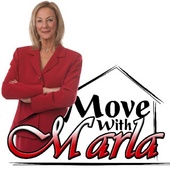 As you discovered in Finding Your Ideal Glenview Condominium - Part 1, buying a Glenview condominium is different from buying a house and has its own set of rules as far as questions that need to be asked, documents that must be reviewed, and information that should be obtained before you commit beyond redemption to a purchase.
As you discovered in Finding Your Ideal Glenview Condominium - Part 1, buying a Glenview condominium is different from buying a house and has its own set of rules as far as questions that need to be asked, documents that must be reviewed, and information that should be obtained before you commit beyond redemption to a purchase.
Although you may not be able to get all the information up front that I stated in the previous blog, if you still believe that you've found the condo that is right for you, go ahead and make an offer. Just guarantee yourself to get this information if you so wish.
Your offer will, of course, contain all of the contingencies you would put into one on a single-family home such as a mortgage commitment, which will allow you to complete the purchase and a complete home inspection by a qualified professional.
However, given the nature of condominium ownership and management, you should also make your offer contingent upon a satisfactory review of:
-
Current condominium documents and bylaws
When you live in a condo, it is considered community living and the majority rules in your complex. It's important to learn of any restrictions in the by-laws that will hinder the way you hope to live in your new home. There can be some very restrictive rules that you should be aware of.
Although something may be permitted, there can be underlying restrictions. For example, you may be aware that the development allows pets but may not be aware that it limits you to one cat per unit or limits the weight of your dog to less than 20 lbs.
If you are buying a Glenview condo to take advantage of their fabulous amenities such as the clubhouse, tennis court, pool or gym, make sure that they can be used when and how you want to use them. Look at the policy for visitors and make sure they have not been banned by the HOA because of insurance or other problems.
-
Current and previous year's condominium budget and year-to-date actual expenditures
You may want to get a professional to review these. It's important to know if the expenses are appropriate with the size of the complex. Does the association budget adequately for routine maintenance, on-going capital expenditures, and reserves? Make sure that fees for management fall into the normal range with local standards. Lastly, look to see how budget projections actually match up to actual expenses. -
Balance Sheet for at least 5 years back
You can tell from these if reserves are adequate for generally expected expenses. Look to see when the HOA is planning for the next new roof or new HVAC system. If it's a newer complex, you may not need to worry about these items unless you plan on living there for a long time. -
Minutes of the last HOA meeting
Fortunately, these are a treasure trove of valuable information. You cannot only find information on any major mechanical systems that need repair but also if there are battles between owners over various issues, if the HOA is dictorial in the way they run things, if owners are in open revolt again the association, and if there are changes being discussed that may change the bylaws in ways that will impede the way you would like to live.
You may not usually need an attorney to buy a single-family home, but it's a good idea to employ one that specializes in real estate for your condo purchase. They can review the recommended documents and advise on anything that is cause for concern. If you do not have an attorney, a CPA who is familiar with condos can also review the budget and balance sheet, maybe even the HOA minutes. It's smart to ask for a quick tutorial so that next year, you can keep track of what your HOA is spending and if it's being spent appropriately.
Undoubtedly, your mortgage bank will insist that their closing attorney inspect the Master and Unit Deeds and probably issue a Title Insurance policy. This attorney (the bank's attorney, not yours) will also make sure there are no outstanding condo fees for the unit and that there is adequate insurance on the complex. Of course, you will have to provide proof of insurance from your insurance agent on the interior of your unit. However, don't forget to also insure your personal property because this will not be covered by unit-owner's insurance.
Remember, you can protect your condominium investment by becoming and staying involved. When you get your new keys, ask when the next HOA meeting will be held. Be sure to attend that meeting and make an effort to attend every subsequent meeting you can.You may even decide to volunteer or run for election to the board. Ultimately, you are a new member with a voice and if you don't vote, you don't get to complain.
When you are in the market for a condo, don't let the process overwhelm you. Educating yourself is important so that when The Marla Schneider Team finds you that perfect Glenview condo, you will rest easy at night knowing all the details beyond the inside of your new unit.

Comments(0)